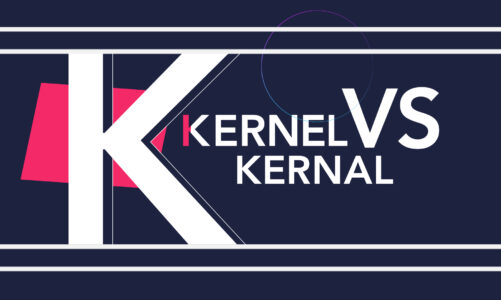Ubuntu and Fedora are two popular Linux distributions that are often compared when it comes to choosing an operating system for personal or professional use. Both are well-respected in the Linux community and have their own unique features and strengths. However, if you are new to Linux or are considering switching from another operating system, it can be difficult to know which one to choose.
Well, right here, we will compare Ubuntu and Fedora to help you make an informed choice. We’ll look at their similarities and differences and which one you should use and why.
An Overview of the Ubuntu
Ubuntu is one of the most popular Linux distributions in the world, and it’s known for being user-friendly and easy to install. It was first released in 2004 and has since become the go-to operating system for many people who are new to Linux. Ubuntu is based on Debian and uses the APT package management system.
As discussed, Ubuntu uses the GNOME desktop environment, which is known for its simplicity and ease of use. The default layout includes a dock on the left side of the screen, which provides quick access to commonly used applications. There is also a search bar at the top of the screen that allows users to quickly find and launch applications.
Pros
- Large community of users and developers
- Comprehensive support and documentation
- Good for beginners
Cons
- Uses more system resources than other Linux distributions
An Overview of the Fedora
Fedora, another popular Linux distribution, is well-known for its security and stability. It was first released in 2003 and is sponsored by Red Hat. The YUM package management system is utilized by Fedora, which is built upon Red Hat.
Fedora uses the Fedora Workstation, which is based on GNOME but includes some additional customizations. The user interface is more customizable than Ubuntu’s, and it offers more options for users who want to personalize their desktop environment. For example, users can choose between the classic desktop mode or the more modern “Activities” mode.
Pros
- Good for advanced users
- Regular updates and releases
- Large community of users and developers
Cons
- May not be as user-friendly as Ubuntu for beginners
Ubuntu vs Fedora: Which One Should You Use?
| Features | Ubuntu | Fedora |
| Release Schedule | Regular releases every six months, with long-term support, releases every two years | Regular releases every six months |
| Desktop Environments | Supports a variety of desktop environments, including GNOME, KDE, and XFCE | The default desktop environment is GNOME, with additional spins available for KDE, XFCE, LXQt, and other environments |
| Software Management | Uses the APT package manager and Snap package format | Uses the DNF package manager and RPM package format |
| Stability | Known for its stability and reliability, with a strong focus on long-term support releases | Also known for its stability but with a focus on providing more cutting-edge software and technologies |
| User Base | Has a large and active user base, which means you can find plenty of resources and support online | Has a smaller user base than Ubuntu but still has a large and active community |
| Security | Includes security features such as AppArmor and UFW firewall, as well as regular security updates | Also includes security features such as SELinux and regular security updates |
Factors You Need to Consider When Choosing between Ubuntu and Fedora
When choosing between Ubuntu and Fedora, there are various factors to consider. Understanding the differences in these areas can help you determine which operating system is better suited to your individual needs.
1: Hardware Requirements
Ubuntu is known for being more resource-intensive than other Linux distributions, which means it may not be the best choice for older hardware. Ubuntu should work seamlessly if you have a relatively new computer equipped with ample memory and processing power. Fedora, on the other hand, is designed to run well on a variety of hardware configurations, including older computers.
2: Software Needs
Both Ubuntu and Fedora come with a variety of default software packages, including web browsers, office suites, and multimedia software. However, if you have specific software needs, such as software for video editing or programming, you may want to consider which operating system offers better support for those applications.
3: Support and Community Resources
Both Ubuntu and Fedora have large and active communities of users and developers, which means you can find plenty of support and documentation online. However, Ubuntu has a larger user base than Fedora, which means you may find more resources and tutorials available for Ubuntu.
Final Thoughts
If you are new to Linux or want an operating system that is easy to use, Ubuntu is probably the best choice. With its intuitive interface, simple installation process, and vast community of developers and users, it is known for being user-friendly.
On the other hand, if you are an advanced user or want an operating system that is more customizable, Fedora may be a better choice. It is stable, secure, and offers more options for personalization.



